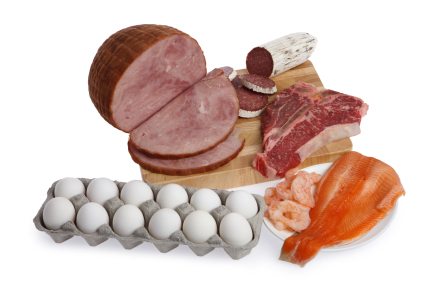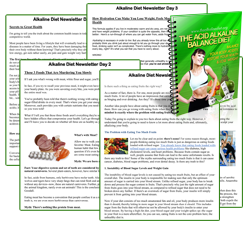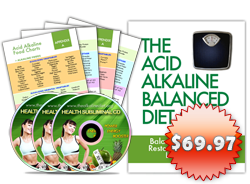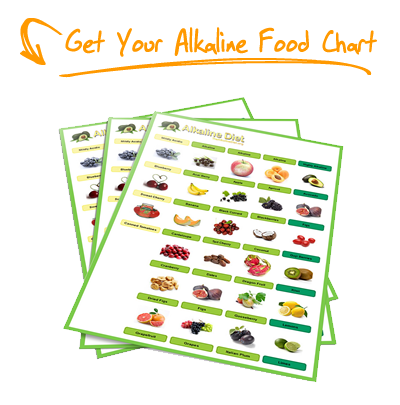The Protein Fallacy – Are You Consuming Too Much Proteins?
Posted on 25. Jun, 2010 by Staff Writer Candy Del Carmen in Blog
 Without any doubt, protein provides great deal of importance in our diet. Protein is essential component of every cell in our body, the impaired tissue, muscles, bones, cartilage, and blood; even for a healthy hair, nails, and skin.
Without any doubt, protein provides great deal of importance in our diet. Protein is essential component of every cell in our body, the impaired tissue, muscles, bones, cartilage, and blood; even for a healthy hair, nails, and skin.
In fact, it is considered as “macronutrients” in which we need to take large amount of foods containing protein. However, unlike carbohydrates and fat, our body does not have reservoir to store protein leading to several heath risks if high protein controls your diet.
Thus, this article will present some important studies of protein and how it is linked to bone disease such as osteoporosis. There is an inconsistency of what people know about protein and what has been found in medical studies.
Therefore, the readers are encouraged to be mindful on their daily diet after they have finished reading this piece of information. It may totally bring changes on each and everyone’s point of view about protein.
What is protein?
A protein is an organic compound and looks like a long train of amino acids linked together with different 22 amino acids containing nitrogen, oxygen, hydrogen, and carbon. Remember, when we consume food high in protein, it broken down through the process of digestion into different amino acids and they combined together to create various types of protein. For example, one type of protein is collagen which is essential for the elasticity, strength and composition of our hair.
From these 22 amino acids, only 8 amino acids can be derived from food and the rest 14 amino acids are considered non-essential and can be produced by the body. Of course, these non-essential amino acids play the most important role in completing the formation of different proteins that our body needs so that our cells can function properly.
If you are asking where to get the 8 essential amino acids to form complete proteins, it is present in all meat, dairy products, poultry, fish and shellfish. These are what we called animal source of protein. However, please keep in mind that we cannot still complete the 8 essential amino acids without the plant-derived source of protein found in fruits, vegetables, grains and nuts. I short, a balanced diet in order to get complete essential amino acids from diet is to combine animal products and plant-derived food source.
What is the exact function of protein?
The ultimate function of protein is for the growth, protection, and repair of the cells. Thus, it is essential in metabolism, digestion, and transportation of all the nutrients and oxygen in the bloodstream.
In children, for example, protein is important for their proper growth and development and low-protein diet can stunt their growth and affect their brain development.
How is protein linked to bone disease such as osteoporosis?
The National Institutes of Health reported that over 10 million Americans, mostly women, are suffering from osteoporosis-related fracture. Can you draw you own conclusions which is responsible for developing osteoporosis? If you are still having apprehensions, you may further read the medical revelations of high-protein diet.
The adverse reaction of too much protein can have catabolic effects on bone and that was proven by many studies showed how protein is linked to osteoporosis.
In a research done in the University of California, experts conducted a 10-month novel studies to women divided into two groups: women who are fond of eating both animal and plant foods rich in protein and women who only consume plant-derived foods. After medical experts examined the blood and urine sample, they carefully analyzed the result from indicators of bone health: amount of chemical osteocalcin (noncollagenous protein found in bone responsible in bone building) and the amount of calcium reabsorbed into the bloodstream were removed from bones.
To further explain the connection of calcium and protein in bone density, the culprit is the influence of sulfur-containing proteins of animal resulting to loss of calcium. How is that so? Since our body cannot store extra protein, the amino acids convert into organic acids. Those acids that our body cannot neutralize can lead to several health effects such as acidosis. In order to regain the natural balance of the body, the process of buffering the influx of acid and borrowing the calcium phosphate from the bones can result for the kidneys to push calcium through the discharge of urine. Meaning, the body tends to lose essential calcium and increases the rate of fracture and bone loss.
As the result, elderly women, who eat too much animal source of protein, have greater risk to develop osteoporosis and lose hip bone density and fractures of the wrists, spines and hips. Therefore, the lower the amount of bone formation, the more chances to decrease bone density.
Can we replace animal protein by soy protein like tofu?
There are claims that soy protein can be the best replacement of animal-protein because it contains high level of phytoestrogen which is known for strengthening the bone density.
It is a factual statement that bone disease is more prone to women because their estrogen levels are fluctuating and permanently decrease when they reach the menopausal stage.
There is a contradicting claim, as stated on the results of some medical studies, that these phytoestrogens can cause infertility because it can only decrease estradiol level by 27% from high consumption of soy protein.
Estradiol is the sex hormone present in females and has critical impact on sexual functioning and reproductive.
In addition, estradiol has strong impact in bones because as women become taller, epiphyseal (areas at the distal ends of bones) closure may not happen. If the epiphyseal completely closes, the bones cannot grow further resulting to osteoporosis especially when women reach menopausal stage wherein there is already and experience of accelerated loss of bone.
For this reason, soy protein is not only the best option to completely replace animal-protein food. Although we are not saying that soy protein like tofu is bad for your health. The medical explanation about soy protein is just a mere clarification to some misinterpreted notion of how soybean can completely replace other complete sources of protein.
What could be the best replacement for animal protein foods?
The basic and common reason why animal products rich in protein and high in fat is generally eliminated in the diet of so many health buffs is because it is significantly attributed to several diseases, not only osteoporosis. In fact, vegetarians are not worried that they may lack in protein because their diet contains adequate supply of amino acids in the necessary proportions. Before, scientists hypothesized that vegetarian will most likely to develop protein deficiency if they will not obtain the complete amino acids. Fortunately, modern nutritionists observed the population of vegetarians who were lived longer and realized that all essential amino acids can be obtained from vegetables or grains eaten over a 1-2 day period.
Even though, all incomplete protein such as green leafy vegetables, tubers, barley, tofu, legumes, seeds and macadamia nuts, if eaten in proportion several times throughout the day, can definitely give complete proteins. You have an option to mix and match the given plant-based food sources. Let’s take for example the legumes; it can be balanced along with grains, nuts and seeds. Another, one cup of avocado contains 3 grams of complete protein and a medium size of potato with skin contains 4 grams.
Vegetarians who opt to choose vegetables instead of meat and pasteurized dairy products need not to worry because without any doubt, they prefer the healthiest choice of diet.
The downside of high protein diet
There is health implication as predicted in medical studies that people who eat more animal protein have higher acid excretion and urinary calcium than those people who eat plant-derived protein, leading to bone disease like osteoporosis. Although the fact remains that regardless of whatever diet it could be, as people become older, the bones contain less calcium and refuse to hold on to redundant calcium. As the bone formation increases, the more osteoblast (the cell responsible for bone formation) becomes exhausted as well.
Hence, there are also several aspects that may hinder the proper bone formation and since there are empirical evidences showed and served as our guide to achieve optimal health, there is nothing to lose if we will start to modify and balance our diet. Undoubtedly, people have control over many diseases that weaken their overall body system: only if they would learn to maintain balance and live a healthy life.





Recent Comments